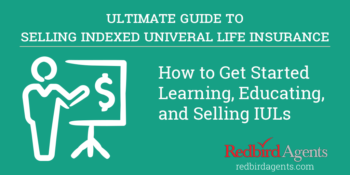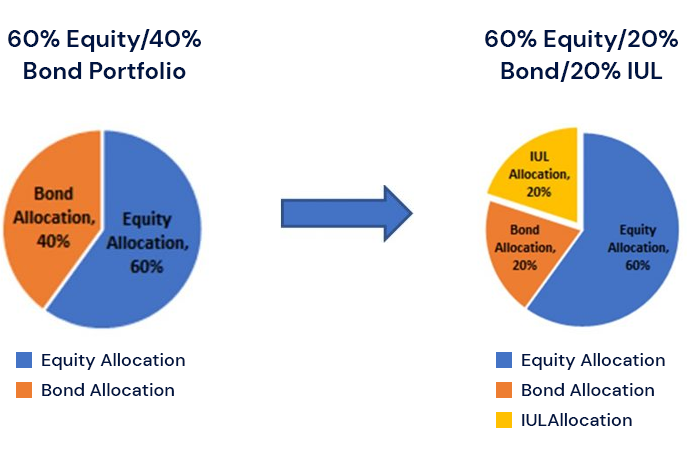All Categories
Featured
Table of Contents
1), frequently in an attempt to defeat their category standards. This is a straw man argument, and one IUL individuals enjoy to make. Do they contrast the IUL to something like the Lead Total Securities Market Fund Admiral Shares with no tons, an expenditure ratio (ER) of 5 basis factors, a turn over proportion of 4.3%, and an extraordinary tax-efficient record of distributions? No, they contrast it to some dreadful actively taken care of fund with an 8% load, a 2% ER, an 80% turn over proportion, and a horrible record of short-term resources gain circulations.
Shared funds usually make annual taxable distributions to fund proprietors, also when the worth of their fund has gone down in value. Shared funds not only call for revenue coverage (and the resulting yearly taxation) when the mutual fund is rising in worth, yet can likewise impose revenue taxes in a year when the fund has dropped in value.
You can tax-manage the fund, collecting losses and gains in order to decrease taxable distributions to the investors, yet that isn't in some way going to alter the reported return of the fund. The possession of mutual funds may need the shared fund owner to pay estimated taxes (max funded life insurance).

IULs are easy to position to ensure that, at the owner's death, the recipient is not subject to either earnings or estate tax obligations. The very same tax obligation decrease methods do not function almost as well with shared funds. There are numerous, typically pricey, tax catches connected with the moment buying and marketing of shared fund shares, traps that do not relate to indexed life insurance policy.
Chances aren't extremely high that you're mosting likely to be subject to the AMT due to your shared fund circulations if you aren't without them. The rest of this one is half-truths at best. While it is real that there is no revenue tax obligation due to your successors when they acquire the profits of your IUL plan, it is likewise true that there is no earnings tax due to your successors when they inherit a mutual fund in a taxed account from you.
Indexed Universal Life Insurance Companies
There are far better methods to prevent estate tax concerns than buying investments with reduced returns. Common funds might trigger income tax of Social Safety and security advantages.

The growth within the IUL is tax-deferred and may be taken as free of tax earnings using lendings. The policy proprietor (vs. the shared fund supervisor) is in control of his or her reportable income, therefore allowing them to minimize and even eliminate the taxes of their Social Safety and security benefits. This one is great.
Right here's one more minimal problem. It's true if you get a common fund for state $10 per share simply before the circulation day, and it distributes a $0.50 circulation, you are after that going to owe taxes (most likely 7-10 cents per share) although that you haven't yet had any gains.
In the end, it's truly concerning the after-tax return, not how much you pay in taxes. You are going to pay more in tax obligations by utilizing a taxable account than if you get life insurance policy. You're also possibly going to have more cash after paying those taxes. The record-keeping needs for owning mutual funds are significantly more complex.
With an IUL, one's records are maintained by the insurance provider, copies of yearly declarations are mailed to the owner, and distributions (if any type of) are completed and reported at year end. This is also type of silly. Of training course you should maintain your tax documents in situation of an audit.
Indexed Universal Life Insurance Comparison
All you need to do is push the paper into your tax folder when it appears in the mail. Rarely a factor to purchase life insurance. It resembles this individual has actually never bought a taxable account or something. Mutual funds are commonly component of a decedent's probated estate.
On top of that, they undergo the hold-ups and expenses of probate. The profits of the IUL policy, on the other hand, is always a non-probate circulation that passes beyond probate directly to one's named beneficiaries, and is for that reason exempt to one's posthumous creditors, undesirable public disclosure, or comparable delays and expenses.
We covered this under # 7, yet just to summarize, if you have a taxable shared fund account, you need to put it in a revocable trust fund (and even easier, make use of the Transfer on Fatality designation) to avoid probate. Medicaid disqualification and lifetime earnings. An IUL can offer their owners with a stream of revenue for their whole lifetime, no matter of the length of time they live.

This is useful when arranging one's events, and converting properties to revenue before an assisted living facility arrest. Mutual funds can not be transformed in a comparable fashion, and are often considered countable Medicaid assets. This is an additional foolish one promoting that bad individuals (you know, the ones that need Medicaid, a federal government program for the bad, to pay for their nursing home) should use IUL rather than mutual funds.
Iul Vs Roth Ira
And life insurance policy looks terrible when contrasted rather against a pension. Second, people that have cash to buy IUL over and beyond their pension are going to need to be terrible at managing cash in order to ever before get approved for Medicaid to spend for their assisted living home expenses.
Persistent and terminal illness motorcyclist. All plans will enable a proprietor's simple access to cash money from their policy, usually waiving any kind of abandonment fines when such individuals suffer a significant illness, require at-home treatment, or end up being constrained to an assisted living facility. Common funds do not supply a comparable waiver when contingent deferred sales fees still put on a common fund account whose owner needs to market some shares to fund the costs of such a stay.
Iul Benefits
You obtain to pay even more for that advantage (motorcyclist) with an insurance coverage policy. What a lot! Indexed universal life insurance policy provides survivor benefit to the recipients of the IUL owners, and neither the proprietor nor the recipient can ever before shed cash due to a down market. Mutual funds supply no such assurances or survivor benefit of any type of kind.
I absolutely do not require one after I get to economic independence. Do I desire one? On standard, a buyer of life insurance pays for the real price of the life insurance coverage advantage, plus the costs of the plan, plus the profits of the insurance coverage firm.
Insurance Index
I'm not totally sure why Mr. Morais included the entire "you can't shed money" once more below as it was covered rather well in # 1. He simply desired to duplicate the ideal marketing point for these things I intend. Once more, you do not shed small bucks, but you can shed genuine bucks, along with face serious opportunity price due to reduced returns.
:max_bytes(150000):strip_icc()/Pros-and-cons-indexed-universal-life-insurance_final-1b83c0fd52154eb69edd47f99ab8927a.png)
An indexed universal life insurance policy plan proprietor might trade their plan for a completely various plan without activating revenue tax obligations. A common fund owner can stagnate funds from one shared fund business to one more without offering his shares at the previous (thus setting off a taxed event), and buying new shares at the latter, frequently based on sales charges at both.
While it is real that you can trade one insurance coverage for one more, the reason that individuals do this is that the very first one is such a horrible plan that even after buying a new one and undergoing the very early, unfavorable return years, you'll still come out in advance. If they were sold the right policy the initial time, they shouldn't have any kind of desire to ever trade it and undergo the early, negative return years once more.
Latest Posts
Best Variable Life Insurance
Term Life Vs Universal Life Insurance
Universal Life Insurance With Living Benefits